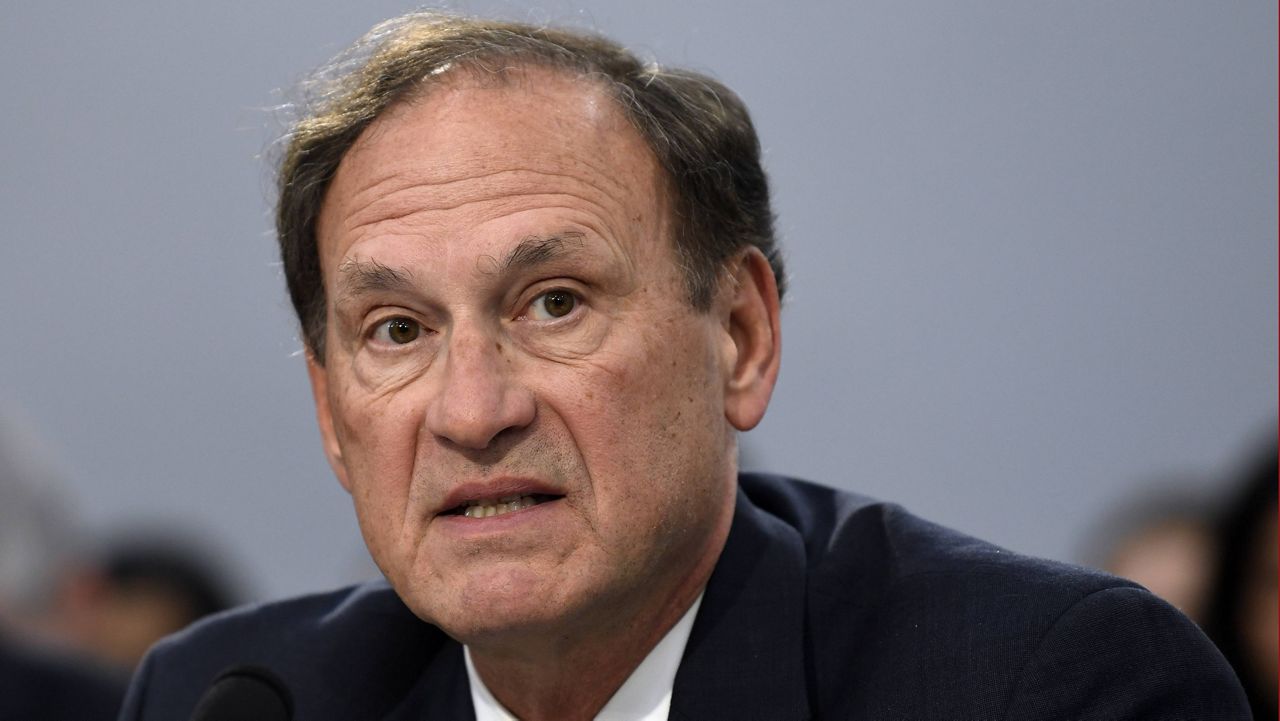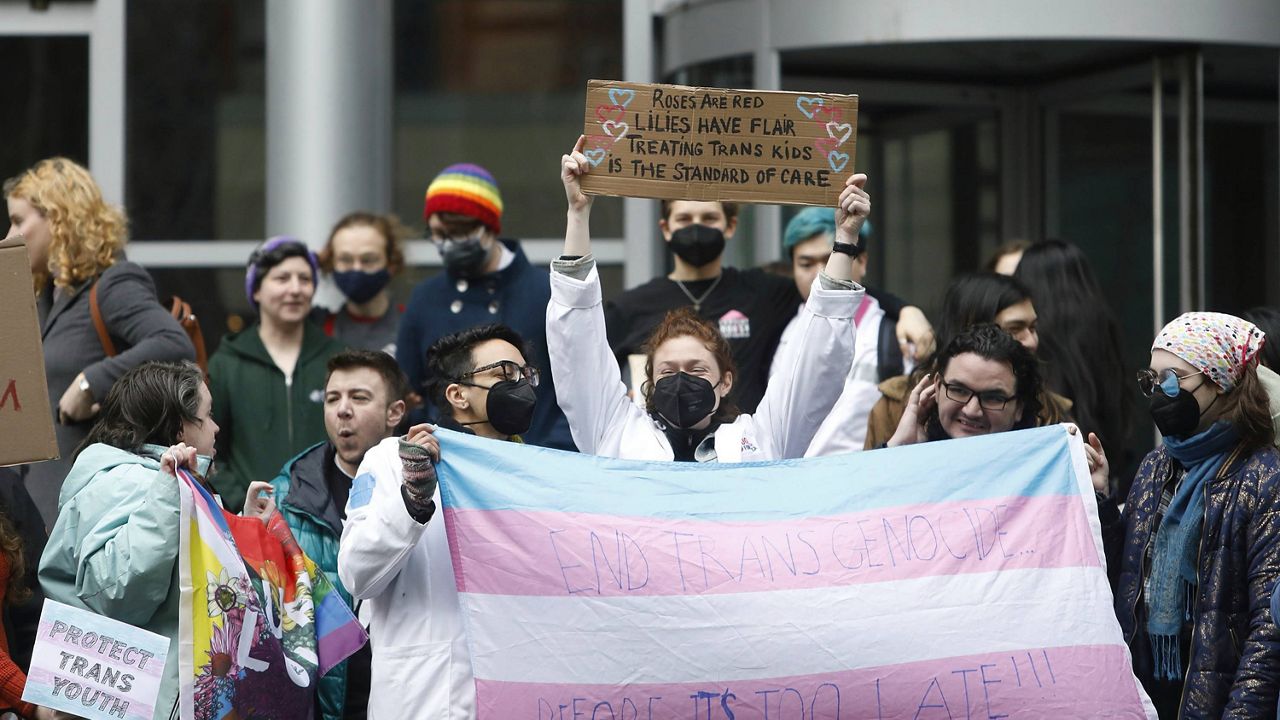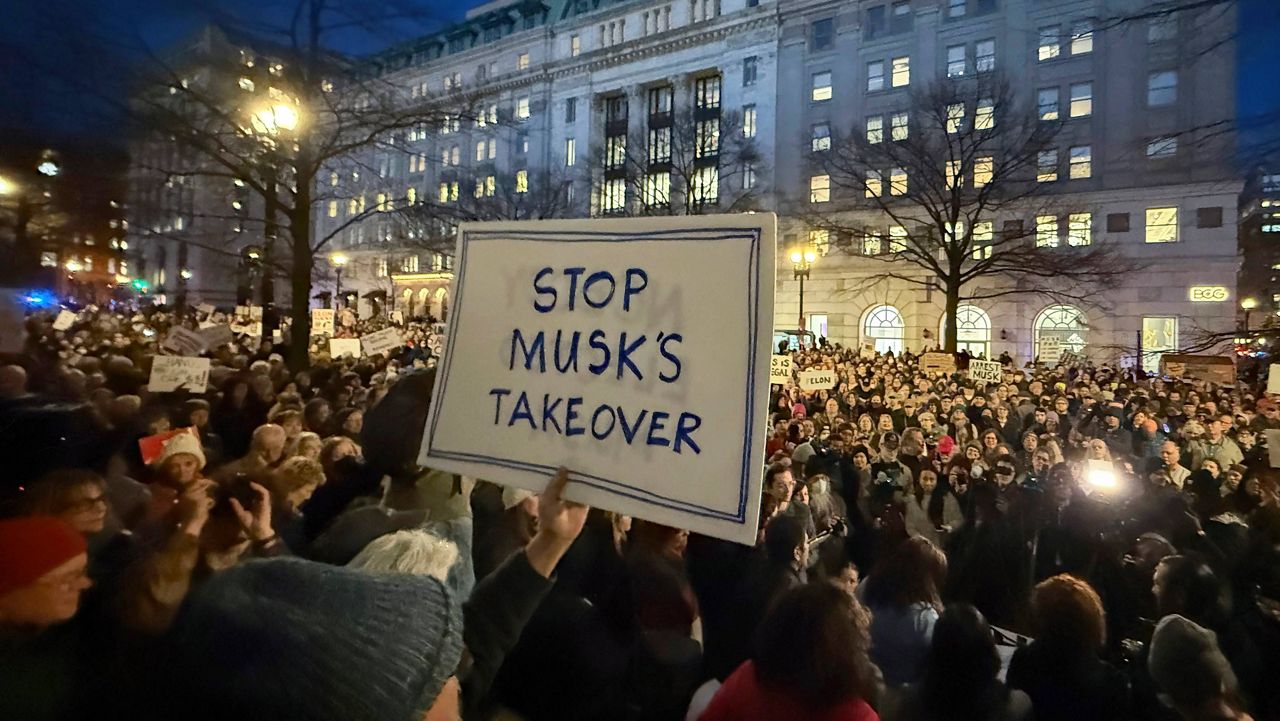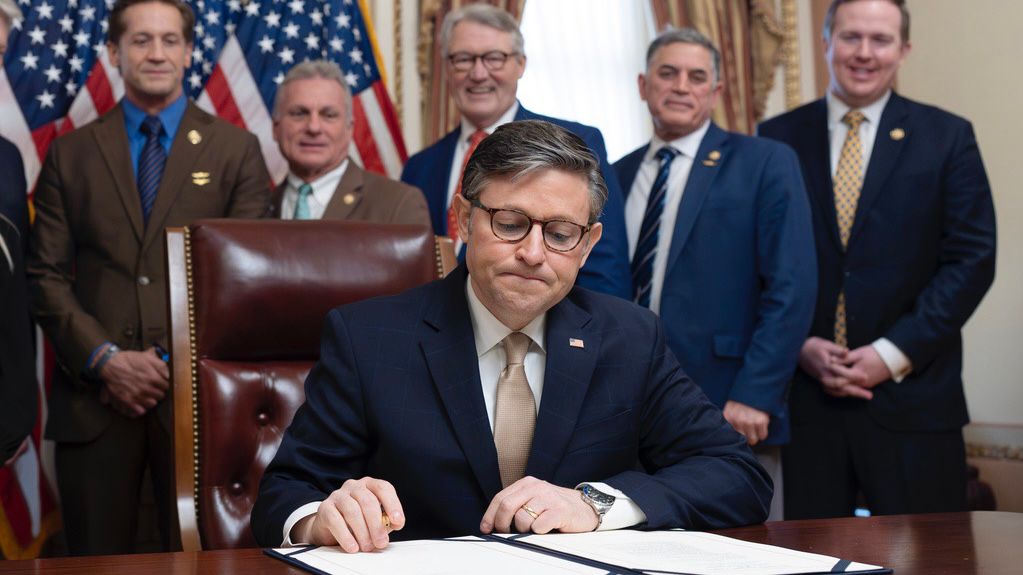Justice Samuel Alito said Tuesday night the leak of the Supreme Court’s decision overturning Roe v. Wade in May endangered the lives of he and some of his colleagues.
What You Need To Know
- Justice Samuel Alito said Tuesday night the leak of the Supreme Court’s decision overturning Roe v. Wade in May endangered the lives of he and some of his colleagues
- Speaking at an event for the conservative think tank The Heritage Foundation, Alito, who authored the decision, called the leak a “grave betrayal of trust by somebody”
- Alito said he has no problem with people criticizing the legal reasoning behind the high court’s decisions, but he took offense to questions about its legitimacy
- In response to a question about possibly expanding the court, Alito said that was a matter for Congress to decide, but he cautioned against making the change for political reasons
Speaking at an event for the conservative think tank The Heritage Foundation, Alito, who authored the decision, called the leak a “grave betrayal of trust by somebody.”
“It was a shock because nothing like that had happened in the past, so it certainly changed the atmosphere at the court for the remainder of last term,” Alito said.
“The leak also made those of us who were thought to be in the majority … targets for assassination because it gave people a rational reason to think they could prevent that from happening by killing one of us,” he added.
Alito noted that a California man was charged in June with trying to assassinate Justice Brett Kavanaugh, who voted to strike down Roe. According to authorities, Nicholas John Roske called 911 from outside Kavanaugh’s Maryland home saying he planned to kill the justice and then himself. Roske has pleaded not guilty.
Later in June, the Supreme Court voted to overturn Roe, the nearly 50-year-old ruling that established the nationwide right to abortion. In the weeks between the leak, first reported by Politico, and the final opinion, abortion-rights protesters held demonstrations outside the Supreme Court and the homes of conservative justices.
Chief Justice John Roberts ordered an investigation into the leak, but no findings from the probe have been made public.
Since the ruling, public opinion of the Supreme Court has fallen to a historic low, polling shows. Alito said he has no problem with people criticizing the legal reasoning behind the high court’s decisions, but he took offense to questions about its legitimacy.
“To say that the court is exhibiting a lack of integrity is something quite different,” Alito said. “That goes to character, not to a disagreement with the result or the reasoning. It goes to character.
“Someone also crosses an important line when they say that the court is acting in a way that is illegitimate,” he added. “I don’t think anybody in a position of authority should make that claim lightly. That’s not just ordinary criticism. That’s something very different.”
While Alito did not say her name Tuesday night, Justice Elena Kagan, who voted to uphold Roe, has repeatedly expressed concerns about the direction of the Supreme Court in recent months.
During a legal conference in Montana in July, Kagan said if “the court loses all connection with the public and the public sentiment, that’s a dangerous thing for democracy.” She added that the court should only overturn precedent in extraordinary circumstances.
“Overall, the way the court retains its legitimacy and fosters public confidence is by acting like a court, is by doing the kind of things that do not seem to people political or partisan, by not behaving as though we are just people with individual political or policy or social preferences,” said Kagan, who stressed she was not referring to any single case.
She doubled down on those comments during an event last month at Northwestern University in Chicago, five days after Roberts said publicly the court's legitimacy should not be questioned "simply because people disagree with an opinion.”
In response to a question about possibly expanding the court, Alito said that was a matter for Congress to decide, but he cautioned against making the change for political reasons.
“If Congress were to change the size of the court and the public perceived that the reason for changing the size of the court was to influence decisions in future cases, what would that do to the public perception of our independence and our legitimacy?” he asked.
President Joe Biden formed a commission last year to study Supreme Court reform. The bipartisan panel submitted its report in December, but it did not take a position on expanding the court, which currently has six justices nominated by Republican presidents and three nominated by Democrats. Biden has said he’s “not a fan” of the idea.
Ryan Chatelain - Digital Media Producer
Ryan Chatelain is a national news digital content producer for Spectrum News and is based in New York City. He has previously covered both news and sports for WFAN Sports Radio, CBS New York, Newsday, amNewYork and The Courier in his home state of Louisiana.








